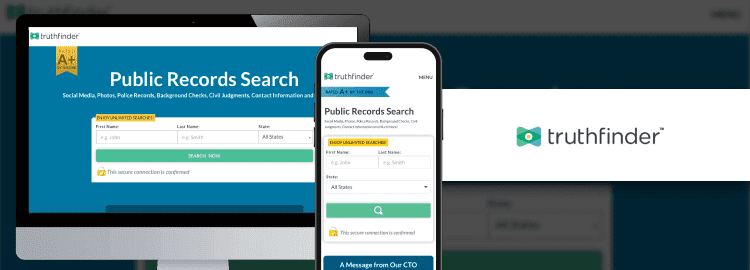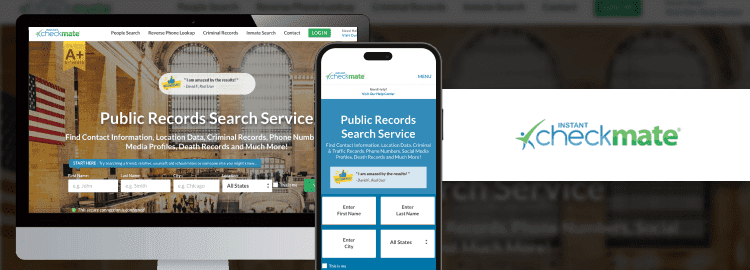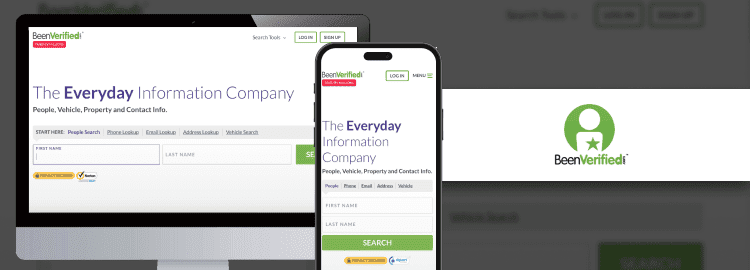Background Check in Delaware: State Laws & Screening Requirements

Ever thought about what a background check is and why you might need one in Delaware? Whether you’re a landlord checking out a potential tenant, an employer verifying a new hire, or simply curious about your own record, background checks are useful.
This article will guide you through what a Delaware background check is, how to get one, what shows up, the relevant laws, fair hiring practices, and other essential details. By the end, you’ll have a comprehensive understanding of background checks in Delaware.
Need a Basic Background Check?
Get StartedWhat Is a Delaware Background Check?
A background check in Delaware is a process used to verify someone’s history. This could include their criminal record, employment history, education and more.
These checks are crucial for making informed decisions about hiring, renting, or other trust-based interactions. For example, employers often run background checks to ensure they are hiring someone with a clean record and the qualifications they claim to have.
In Delaware, background checks can also include checks for driving records, credit history, and any history of drug or alcohol abuse. These checks are often required for positions that involve handling money, driving company vehicles, or working with vulnerable populations like children or the elderly.
Background checks help protect businesses, property owners, and the general public by providing a comprehensive view of a person’s past behavior and reliability
What Are the Background Check Laws in Delaware?
Delaware has specific laws governing background checks to ensure they are conducted fairly and legally. Here’s a closer look at the key laws governing background checks in Delaware:
Delaware Discrimination in Employment Act (DDEA)
The Delaware Discrimination in Employment Act (DDEA) prohibits discrimination based on race, color, religion, sex, national origin, disability, age, and genetic information. This act applies to all employment practices, including background checks.
Employers must ensure that their background check procedures do not disproportionately affect any protected class. For instance, an employer cannot require criminal background checks only for applicants of a certain race or ethnicity.
Federal Fair Credit Reporting Act (FCRA)
The Federal Fair Credit Reporting Act (FCRA) is important because it makes sure that consumer information in reports is accurate, fair, and private. Here are some key points about how the FCRA affects background checks:
- Notification and Consent: Employers must inform applicants in writing that a background check will be done and get their permission.
- Pre-Adverse Action Disclosure: If an employer plans to take negative action (like not hiring the applicant) based on the background check, they must give the applicant a copy of the report and a summary of their rights under the FCRA.
- Adverse Action Notice: After taking adverse action, the employer must inform the applicant, providing contact information for the reporting agency and explaining the applicant’s right to dispute the information.
Title 19, Delaware Code, Chapter 7 (Employment Practices)
Title 19, Chapter 7 of the Delaware Code outlines general employment practices, including guidelines for background checks. This section mandates that:
- Employers must treat all applicants equally when conducting background checks.
- Information from background checks should be relevant to the job for which the applicant is being considered.
- Employers must comply with both state and federal laws regarding the use of background checks in employment decisions.
Title 11, Delaware Code, Chapter 85 (State Bureau of Identification)
Title 11, Chapter 85 establishes the State Bureau of Identification (SBI), which is responsible for maintaining criminal history records in Delaware. The SBI handles the processing and dissemination of criminal background checks. Key points include:
- Public Access: Certain criminal history records are accessible to the public, while others are restricted.
- Accuracy: The SBI must ensure the accuracy and completeness of criminal records.
- Request Process: Individuals and entities must follow a specific process to request criminal background checks, including providing necessary documentation and fees.
Title 29, Delaware Code, Chapter 69 (Public Employment Relations)
Title 29, Chapter 69 covers public employment relations, including background check requirements for public sector employees. This chapter ensures that:
- Background checks are conducted consistently across public employment sectors.
- Information obtained is relevant to the position being applied for.
- Applicants are informed of their rights and the procedures involved in the background check process.
Delaware Medical Privacy Act
The Delaware Medical Privacy Act protects the confidentiality of medical information. While medical information is generally not included in standard background checks, certain positions may require a review of medical history (e.g., healthcare jobs). Key provisions include:
- Consent: Individuals must provide explicit consent for the release of their medical information.
- Relevance: Medical information obtained must be relevant to the job requirements.
- Confidentiality: Employers must maintain the confidentiality of medical information and use it only for legitimate employment purposes.
Ban the Box Legislation (House Bill 167)
The “Ban the Box” legislation in Delaware, House Bill 167, restricts employers from inquiring about an applicant’s criminal history on the initial job application. This law aims to reduce employment barriers for individuals with a criminal record and ensure that they are evaluated based on their qualifications first. Key aspects include:
- Timing: Employers can inquire about criminal history only after the initial application stage, typically during the interview or post-offer process.
- Exceptions: Certain positions, such as those involving law enforcement or working with vulnerable populations, may be exempt from this requirement.
- Disclosure: Employers must provide applicants with an opportunity to explain their criminal history and any mitigating circumstances.
Local Delaware Fair Hiring Laws
Local Delaware fair hiring laws are designed to ensure that all job seekers have an equal opportunity to gain employment without facing unfair barriers or discrimination. One of the most significant components of these laws is the “Ban the Box” legislation, formalized through House Bill 167.
This law restricts employers from asking about an applicant’s criminal history on initial job applications, delaying such inquiries until later in the hiring process. The intent is to allow individuals to be evaluated based on their qualifications and skills first, rather than being immediately disqualified due to their criminal past.
In Wilmington, the largest city in Delaware, specific fair hiring practices further reinforce these principles. Employers in Wilmington are prohibited from including questions about criminal history on initial job applications, similar to the state-wide “Ban the Box” law. This approach helps to create a more inclusive job market, giving applicants with criminal records a fair chance to showcase their capabilities and secure employment.
Wilmington’s rules also stress the importance of judging candidates based on their qualifications and how their experience fits the job.
How Do I Get a State Background Check in Delaware?
Here are the steps you need to know about getting a background check in Delaware:
- Identify Your Need: Determine if you need a background check for employment, tenancy, or personal reasons.
- Gather Required Information: Collect necessary details such as full name, date of birth, and Social Security Number of the person being checked.
- Choose the Type of Check: Decide if you need a criminal, driving or full background check.
- Visit the Delaware State Bureau of Identification (SBI): This is the primary agency for background checks. You can visit their office or use their online services.
- Submit Your Request: Fill out the necessary forms and submit your request along with any required fees.
What Shows up on a Delaware Background Check?
Here are some common types of background checks and what they typically show:
Driving Record Checks
Driving record checks are essential for positions that involve operating a vehicle, such as delivery drivers, commercial drivers, or any role that requires regular driving. These checks provide comprehensive details about an individual’s driving history. They can reveal any traffic violations, including speeding tickets, running red lights, and driving under the influence (DUI).
Drug Testing
Drug testing is a common requirement by employers to ensure a drug-free workplace. Different types of drug tests can be employed to detect illegal substance use. Urine tests are the most prevalent and can detect recent use of drugs such as marijuana, cocaine, amphetamines, and opiates.
Credit Background Checks
Credit background checks are often used by employers for jobs with financial responsibilities and by landlords checking potential tenants. These checks provide a detailed view of a person’s financial history, helping assess their financial responsibility and reliability.
Criminal Background Checks
Criminal background checks are important for understanding an individual’s past legal issues. They can uncover any criminal convictions, including felonies and misdemeanors, providing detailed information about the nature of the offenses and the outcomes.
Employment Verification
Background checks for employment are used to confirm an individual’s work history. They provide details about past employers, including the names of the companies, positions held, and the duration of employment. This verification is essential for ensuring that the information provided by the job applicant is accurate.
Civil Court Searches
Civil court searches are conducted to uncover any non-criminal legal issues an individual might have been involved in. These checks can reveal lawsuits, judgments, bankruptcies, and other civil litigation.
Education Verification
Education verification is used to confirm an individual’s academic credentials. This check involves verifying the degrees earned, the institutions attended, and the dates of attendance.
How Far Back Does a Background Check Go in Delaware?
Background checks in Delaware typically go back seven years, especially for employment purposes. However, this can vary based on the type of check and the information being sought. For example, criminal background checks might reveal convictions older than seven years, depending on the nature of the crime and the position being applied for.
How Long Does a Background Check Take in Delaware?
The turnaround time for a background check in Delaware varies:
- Criminal Background Checks: Usually take 1-3 days.
- Driving Record Checks: Typically processed within a day.
- Employment and Education Verification: Can take 3-7 days.
- Credit Checks: Usually processed within a day.
How Much Does a Background Check in Delaware Cost?
Costs for background checks in Delaware can vary:
- Criminal Background Check: Around $52 for a state check.
- Driving Record Check: Typically costs about $25.
- Employment Verification: Varies depending on the service provider, usually around $20-$50 per check.
- Credit Background Check: Costs around $15-$30.
Where To Get A Background Check In Delaware?
You can get a background check through several channels in Delaware:
- State Bureau of Identification: The main state agency for certified criminal history report checks;
- Background Check Sites: Websites with paid subscriptions that offer basic searches for personal purposes.
Best Background Check Sites
Here are some trusted websites to conduct background checks online:
- TruthFinder – Best for Comprehensive Reports
- Instant Checkmate – Best for Quick Results
- BeenVerified – Best for User Experience

TruthFinder is known for its detailed and accurate background reports. It gathers information from various sources, such as criminal records, social media profiles and contact details, making it a top choice for those needing comprehensive information.
Pros
-
Comprehensive data
-
User-friendly interface
-
Includes social media checks
Cons
-
Monthly subscription required
-
Can be expensive
-
Non-FCRA compliant
Star Rating
/ 5.0

Instant Checkmate is fast and reliable, making it a great option for quick background checks. It provides a variety of checks, including criminal records and contact details.
Pros
-
Fast results
-
Easy to use
-
Wide range of checks
Cons
-
Subscription-based
-
Limited customer support
-
Non-FCRA compliant
Star Rating
/ 5.0

BeenVerified is known for its exceptional user experience, with an intuitive design and easy-to-use features. It is highly rated for providing thorough background checks with minimal hassle.
Pros
-
Easy-to-use interface
-
Mobile app available
-
Good customer support
Cons
-
Some data might be outdated
-
Subscription required
-
Non-FCRA compliant
Star Rating
/ 5.0
Final Note On Delaware Background Checks
Understanding Delaware background check laws and processes is crucial for anyone looking to hire, rent, or simply learn more about someone’s history.
Using reputable background check providers ensures you get accurate and comprehensive information. Whether you’re an employer, landlord or curious individual, knowing how to conduct and interpret a background check can save you time, money, and potential legal issues.
Disclaimer: Some background check sites are just for personal use and conducting basic people searches. Others, such as those used by potential employers, must comply with the Fair Credit Reporting Act (FCRA). This law limits the types of information you can find on other people. If you’re an employer or landlord using a background check for professional purposes, be sure to choose a site that’s FCRA compliant. Using a people search site that doesn’t comply with the FCRA to screen potential tenants, domestic workers or employees is illegal.
The information available on our website may not be 100% accurate, complete, or up to date, so do not use it as a substitute for your own due diligence, especially if you have concerns about a person’s criminal history. The services we mention do not make any representation or warranty about the accuracy of the information available through our website or about the character or integrity of the person about whom you inquire. For more information, please review each service’s Terms of Use.
Choose a state to learn more



